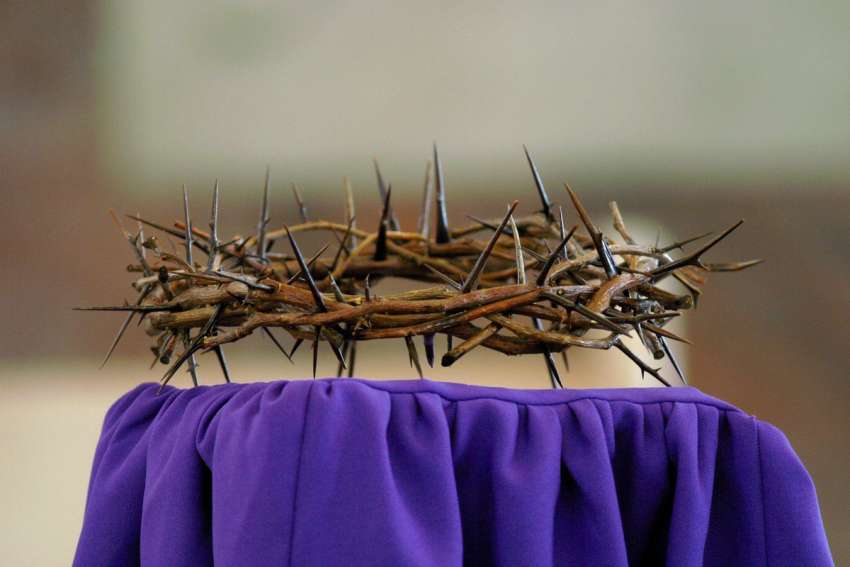Suzan Sammons’ The Stations of the Cross in Slow Motion. A Daily Devotion for Lent is a timely resource for Catholics seeking tranquil contemplation in a world filled with noise. It offers several days of reflections for each of the 14 events along the Way of the Cross.
Sammons, who co-wrote The Jesse Tree: An Advent Devotion with her husband Eric, said she “felt a push” from parents to produce a Lenten devotional book to help families and individuals navigate the liturgical season. She noted there is a dearth of hardcover and digital media for Lent compared to Advent.
Spending three-to-four days on each station afforded the Florida-based author an opportunity to explore and dig into different aspects. Sammons strove to provide an immersive experience by complementing written meditations with curated prayers, Scripture passages, discussion questions and insights from the saints. Choosing a theme brings these varied textual elements together.
“The theme should (also) be something we naturally associate with that station,” said Sammons. “For instance, in the Fifth Station of the Cross, Simon of Cyrene helps Jesus carry His Cross, most of us naturally think about suffering and what we do to carry our Cross — and what we do to help the Lord carry His Cross. How do we offer up our sufferings in union with Our Lord?
“In the same way, for the First Station of the Cross, Jesus is condemned to death, the theme I chose to use for that is rejection,” continued Sammons. “He has been rejected by the civil authorities, the religious leaders and even by one of His own disciples. It was a natural theme. I tried to pull something like that out for each station so we can meditate on it for three or four days.”
The themes for the first, second and third fall are temptation, sin and repentance respectively. For the 12th station, Jesus’ death, the theme is the last three words He uttered: “it is finished.”
All the aforementioned stations are richly described in the Gospels of Matthew, Mark, Luke and John. This is not the case for the Sixth Station of the Cross, Veronica wipes the face of Jesus. There is no mention of Veronica and her cloth in Scripture. This account became known to Catholics through oral tradition. Sammons overcame this limitation by incorporating passages from Genesis, John and Corinthians to support an image of God theme.
Sammons writes in her introduction that she “was fascinated by St. Veronica” as a kid.
“I imagined what it would have been like to see Our Lord on the Way, to speak a few kind words, to try to help Him just a little.”
In addition to commemorating the quietly powerful actions of St. Veronica, The Stations of the Cross in Slow Motion showcases the theology of four other saints: Francis of Assisi, St. John Henry Newman, St. Alphonsus Liguori and St. Josemaría Escrivá — all of whom wrote a Way of the Cross.
Whether it is one of the saint’s prayers, the reflection or the discussion question, Sammons hopes there is something from each day that strikes a chord. Readers have informed Sammons that her book achieves this aspiration.
“People have said that digging more deeply into the stations will, on a daily basis, give them a kernel to carry through the day and to just keep pondering. Sometimes that happens during the readings at Mass. You hear something in the morning, and it just stays with you. Perhaps it (also happens) during prayer time and when reading Scripture. It is a beautiful grace, I think, that God gives us. I think the same thing can happen with the stations.”


